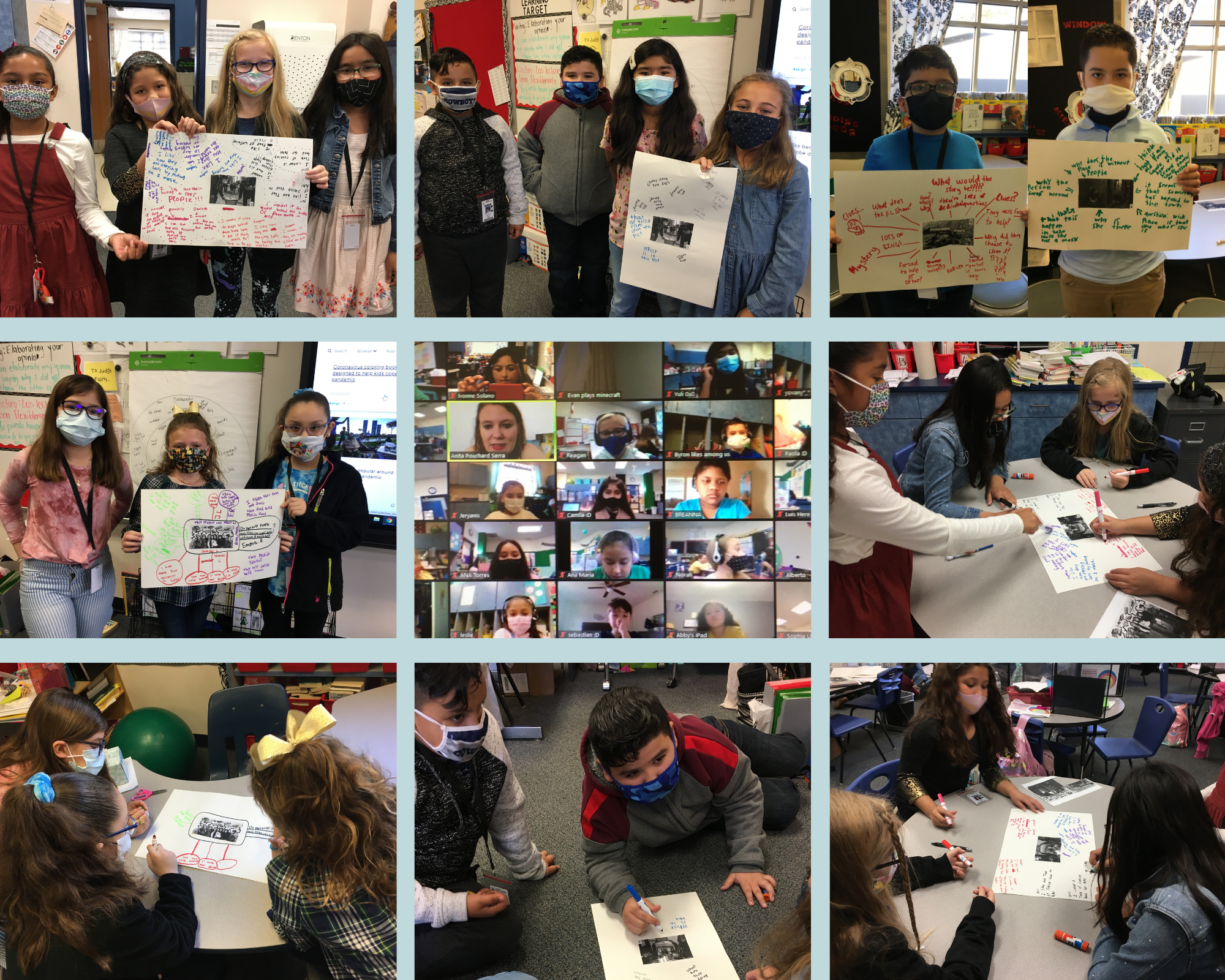This unit was created by Ivonne Solano, a fourth grade bilingual teacher in a two-way dual language immersion program in Denton, TX, as part of the fall 2020 Pulitzer Center Teacher Fellowship program on Media, Misinformation, and the Pandemic. It is designed for facilitation across five–eight days/class periods.
For more units created by Pulitzer Center Teacher Fellows in this cohort, click here.
Objectives:
The objective for this lesson is for students to read expository texts about the COVID-19 pandemic in local and global contexts, and to draw connections and understand the impact of the pandemic. Students will then...
- Draw connections between local/global impacts of the pandemic on different groups of people.
- Apply research and interview skills to create original reports that reflect the voices of community members who are helping combat the impacts of the novel coronavirus in their communities.
Unit Overview:
What is my role in my community and in the world? Who makes a difference, and how can I make a difference?
Students will engage in an inquiry lesson to reflect on the impact that the global pandemic has had on their immediate communities. Students will reflect on the personal impacts on their families, communities, and themselves. As they engage in this reflective work, they will draft reflective pieces on how the pandemic has impacted them. They will then begin to explore the ways in which the pandemic has affected different communities across the world by analyzing news artices., They will focus on three questions as they read the articles:
- How has the pandemic affected the community? How is that like/unlike how the pandemic has affected me?
- What does the community need? What do I need?
- Who are the helpers in the community? What can I do to help?
After students learn about the global impact of the pandemic, and how people throughout the world are working to help their communities, they will then focus on a helper in their community to interview. Students will learn about what a journalist does, how to write interview questions, and conduct an interview. Students will then select a venue to share the highlights of their interview. Students can write an essay, use photography and captions, or a short video to share their findings.
Resources for Facilitating this Unit:
Click here for a PDF outlining lesson plans for this unit including warm-ups, resources, discussion questions, activities, and performance tasks for the unit.
Performance Task/Assessment and Evaluation:
This unit culminates in a final assignment where students identify a person who is helping in their community, prepare questions for that person, interview that person and note key details, then create a final project that expresses what they learned from their interviews. Students will work on publishing their final interview, and reflections on the project. Click below to view student examples:
- Interview with teacher
- Interview with parent
- Interview with parent
- Interview with parent
- Interview with parent
Click here to view more pictures of student work from throughout the unit.
Texas Essential Knowledge and Skills for English Language Arts and Reading, Grade 4:
4(6) Comprehension skills: listening, speaking, reading, writing, and thinking using multiple texts. The student uses metacognitive skills to both develop and deepen comprehension of increasingly complex texts.
4 (7) Response skills: listening, speaking, reading, writing, and thinking using multiple texts. The student responds to an increasingly challenging variety of sources that are read, heard, or viewed.
(12) Composition: listening, speaking, reading, writing, and thinking using multiple texts--genres. The student uses genre characteristics and craft to compose multiple texts that are meaningful.
(13) Inquiry and research: listening, speaking, reading, writing, and thinking using multiple texts. The student engages in both short-term and sustained recursive inquiry processes for a variety of purposes.
